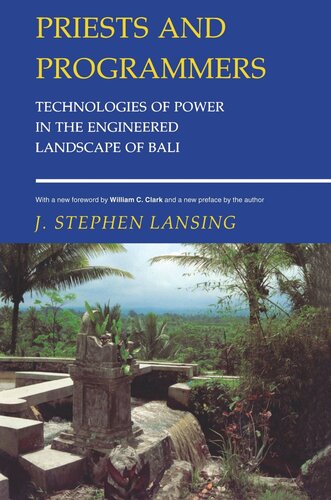

Most ebook files are in PDF format, so you can easily read them using various software such as Foxit Reader or directly on the Google Chrome browser.
Some ebook files are released by publishers in other formats such as .awz, .mobi, .epub, .fb2, etc. You may need to install specific software to read these formats on mobile/PC, such as Calibre.
Please read the tutorial at this link: https://ebookbell.com/faq
We offer FREE conversion to the popular formats you request; however, this may take some time. Therefore, right after payment, please email us, and we will try to provide the service as quickly as possible.
For some exceptional file formats or broken links (if any), please refrain from opening any disputes. Instead, email us first, and we will try to assist within a maximum of 6 hours.
EbookBell Team

5.0
18 reviewsFor the Balinese, the whole of nature is a perpetual resource: through centuries of carefully directed labor, the engineered landscape of the island's rice terraces has taken shape. According to Stephen Lansing, the need for effective cooperation in water management links thousands of farmers together in hierarchies of productive relationships that span entire watersheds.
Lansing describes the network of water temples that once managed the flow of irrigation water in the name of the Goddess of the Crater Lake. Using the techniques of ecological simulation modeling as well as cultural and historical analysis, Lansing argues that the symbolic system of temple rituals is not merely a reflection of utilitarian constraints but also a basic ingredient in the organization of production.